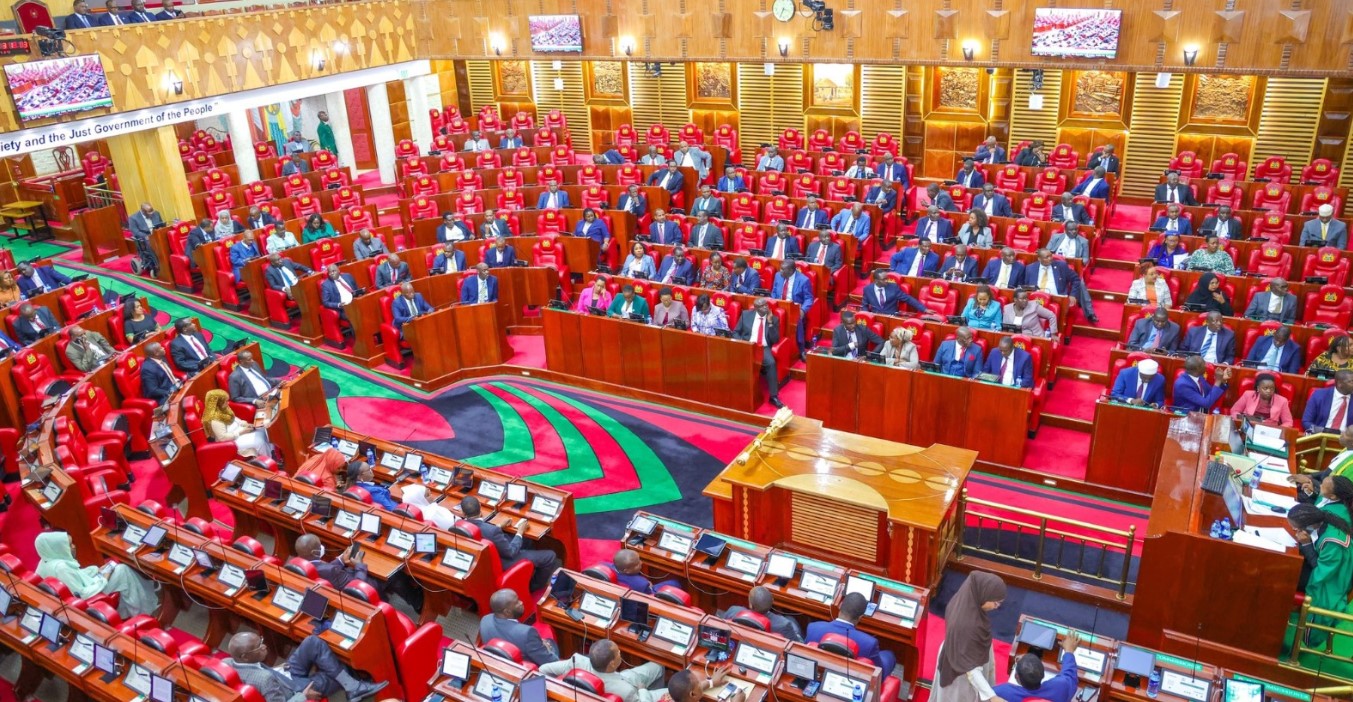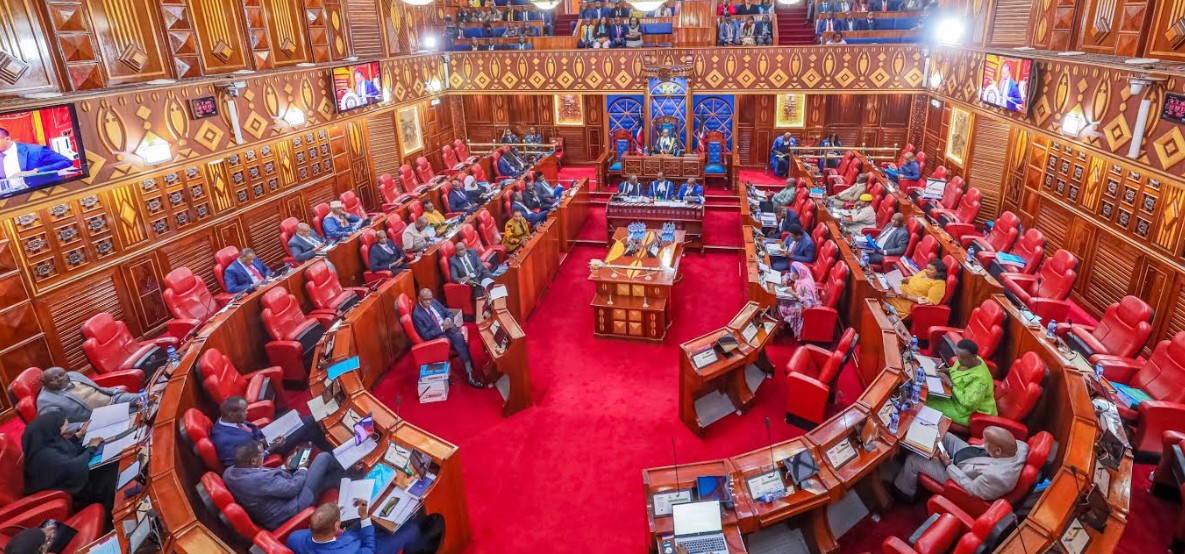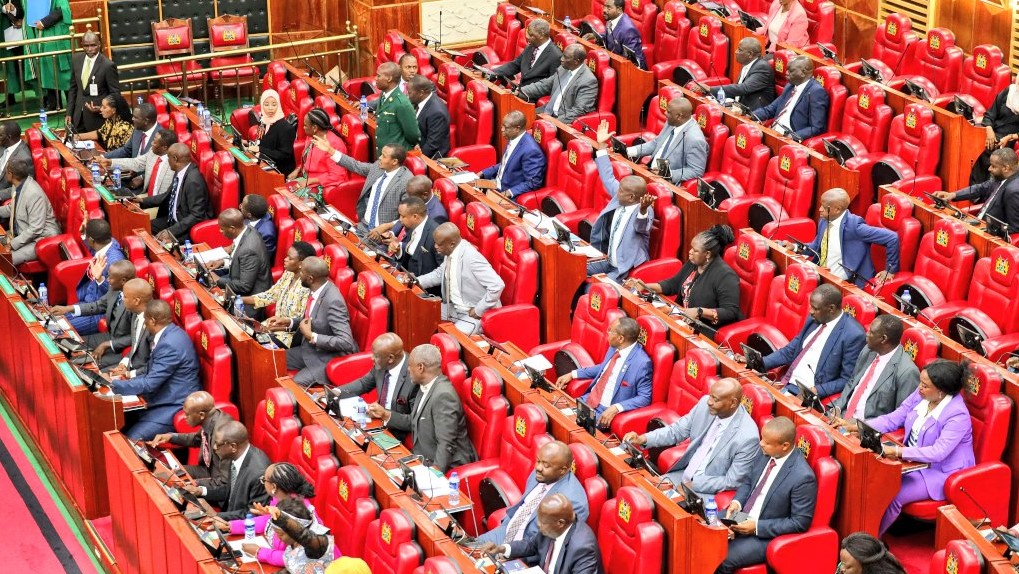MPs to challenge court ruling on NG-CDF unconstitutionality

By Lucy Mumbi |
The Friday ruling stated that all projects, programmes, and activities under the fund must be halted by June 30, 2026.
The National Assembly has announced plans to appeal a recent ruling by a three-judge bench that declared the National Government Constituencies Development Fund (NG-CDF) unconstitutional.
On Friday, the High Court declared the NG-CDF Act of 2015 unconstitutional, marking a setback for MPs. The ruling, delivered by a bench of Justices Kanyi Kimondo, Mugure Thande, and Roselyne Aburili, stated that all projects, programmes, and activities under the fund must be halted by June 30, 2026.
Keep reading
Following the court's decision, the National Assembly's legal team quickly obtained the ruling and court documents, intending to challenge the verdict at the Court of Appeal.
The move is part of MPs’ efforts to retain control of billions of shillings allocated to the fund.
“The National Assembly will also apply for the stay of the declaration of the unconstitutionality of the NGCDF Act, pending the hearing and determination of the intended appeal. The House intends to challenge the verdict on all the grounds cited by the petitioners and allowed by the court,” Parliament said in an update.
Separation of powers
The law was ruled unconstitutional based on the argument that it violates the principle of separation of powers and was passed without proper consultation with the Senate.
“The National Government Constituency Development Fund (NG-CDF), as amended in 2022 and 2023, is hereby declared unconstitutional. The NG-CDF and all its projects, programmes, and activities shall cease to operate on the stroke of midnight on June 30, 2026,” Justice Kimondo said in the ruling.
The judges criticised Members of Parliament for overstepping their constitutional mandate by engaging in activities meant for national and county governments.
According to the court, allocating billions to MPs through the NG-CDF was a misuse of taxpayer money, as a constituency is not a delivery unit.
The ruling came after a case filed by activists Wanjiru Gikonyo and Cornelius Oduor, who argued that the NG-CDF breached the principles of the Public Finance and Management Act and the division of revenue. The law mandates that revenue should be distributed between the national government and counties.
“It gives the MP the means to build up local patronage that advantages him or her in elections, thus compromising principles of fair elections and integrity, sustaining corrupt practices, and intruding on the functions or powers of national and county governments,” Oduor said during the case.
MPs have traditionally used the NG-CDF to finance local projects and provide bursaries within their constituencies.
In January, delays in the disbursement of the fund halted parliamentary proceedings, with MPs threatening to impeach former Treasury Cabinet Secretary Njuguna Ndung’u over the matter.
The CDF Act, originally enacted in 2003, requires the government to allocate at least 2.5 per cent of the previous year’s audited revenue for use at the constituency level.
However, in 2020, the law was deemed unconstitutional, and MPs were given one year to amend it. The revised version, the NG-CDF, has now also been struck down by the court.
Reader comments
Follow Us and Stay Connected!
We'd love for you to join our community and stay updated with our latest stories and updates. Follow us on our social media channels and be part of the conversation!
Let's stay connected and keep the dialogue going!











